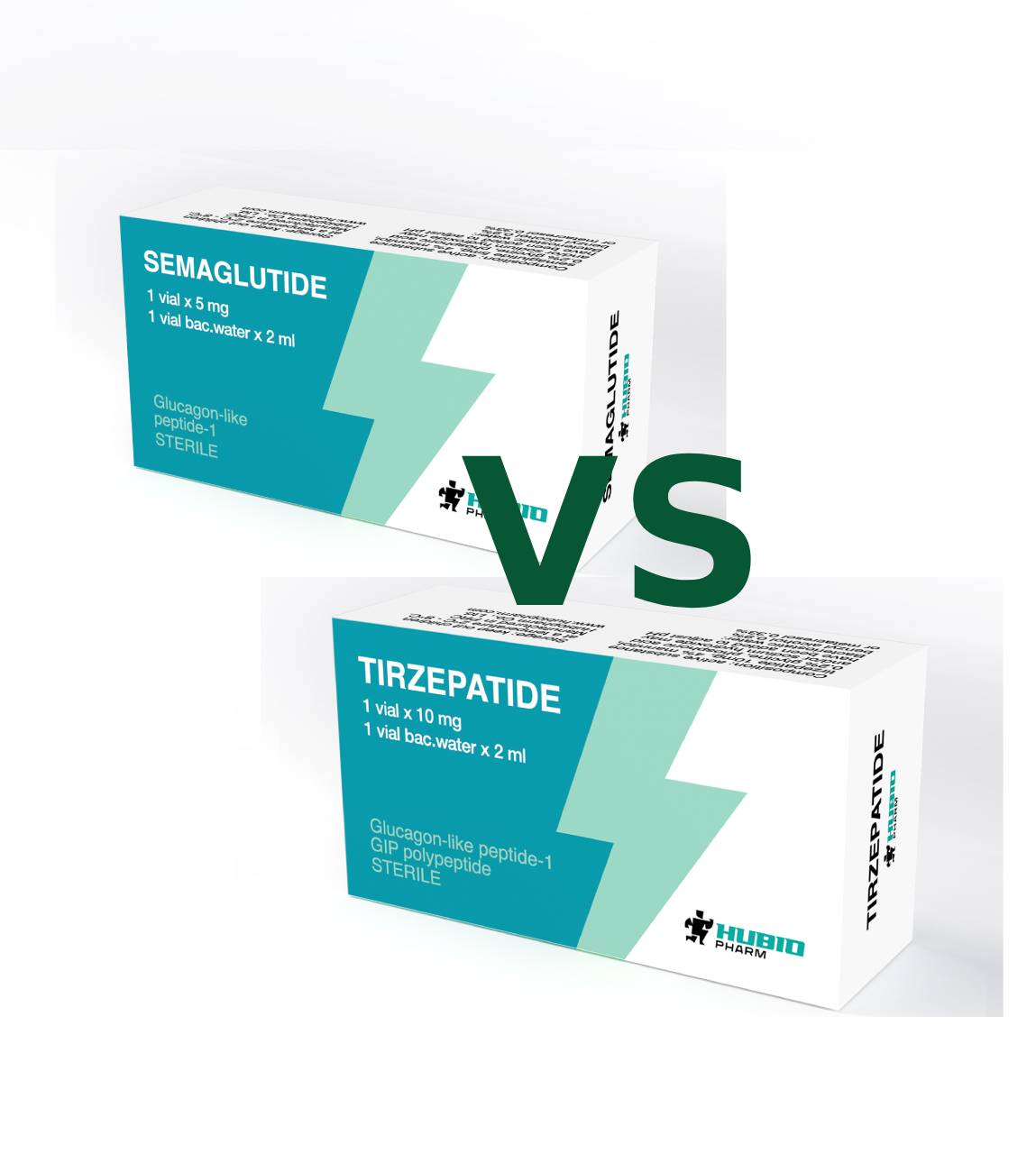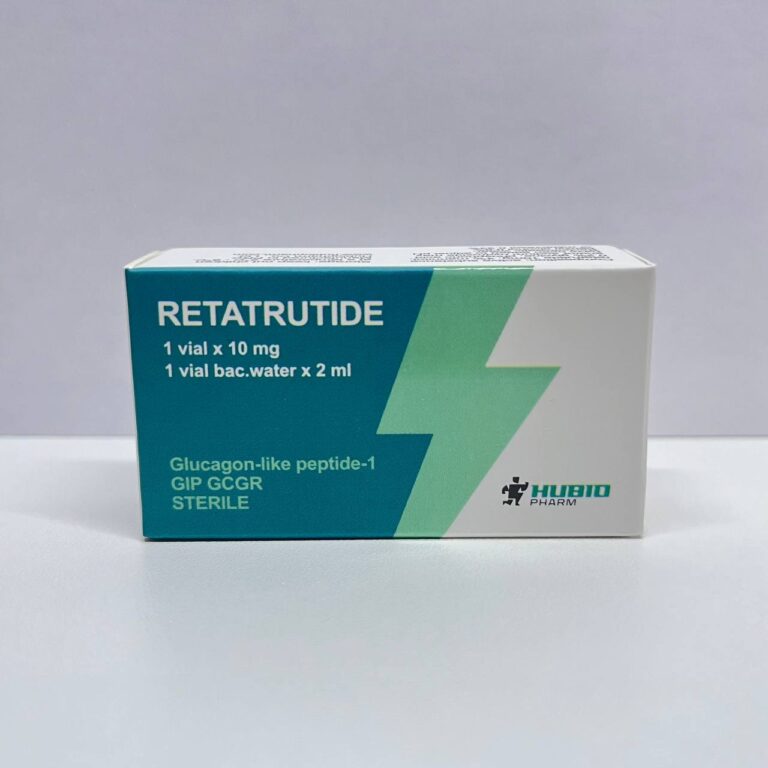Introduction: The Weight Loss Revolution
The search for safe and effective weight loss solutions has accelerated in recent years, fueled by rising obesity rates and a growing demand for clinically proven options. Among the newest and most promising therapies are Semaglutide and Tirzepatide, two groundbreaking medications that have demonstrated significant effectiveness in helping adults achieve sustainable weight loss.
These medications are increasingly recommended in combination with lifestyle interventions such as balanced diet, structured exercise, and behavioral therapy, offering a holistic approach to weight management. But how do Semaglutide and Tirzepatide compare in terms of weight loss efficacy, side effects, safety profile, and suitability for different individuals?
In this detailed guide, we will explore Semaglutide vs Tirzepatide for weight loss, including their mechanisms of action, clinical benefits, potential side effects, dosage recommendations, and use for adults with or without diabetes. By the end of this post, you will have a clear understanding of which therapy may best suit your weight loss goals.
What is Semaglutide for Weight Loss?
Semaglutide is a GLP-1 (glucagon-like peptide-1) receptor agonist originally developed to manage type 2 diabetes. GLP-1 is a hormone that regulates blood sugar levels, slows gastric emptying, and promotes satiety. When used for weight loss, Semaglutide 5mg Peptides has been shown to:
- Suppress appetite: By reducing hunger signals, it helps individuals eat fewer calories and maintain a calorie deficit for weight loss.
- Slow gastric emptying: Prolongs the feeling of fullness after meals, reducing overeating.
- Improve insulin sensitivity: Helps regulate glucose and fat metabolism, even in non-diabetic individuals.
Clinical Evidence
Multiple clinical trials demonstrate Semaglutide’s effectiveness for weight loss in adults without diabetes. Participants typically experience 10–20% reductions in body weight over 68 weeks when combined with lifestyle modifications. This makes Semaglutide a highly effective and evidence-backed option for long-term weight management.
What is Tirzepatide for Weight Loss?
Tirzepatide is a next-generation dual GLP-1 and GIP (glucose-dependent insulinotropic polypeptide) receptor agonist. By targeting both hormones, Tirzepatide 10mg Injection provides enhanced appetite suppression and metabolic regulation.
Key benefits include:
- Appetite control: Reduces caloric intake and cravings, similar to Semaglutide.
- Enhanced weight loss: Clinical studies suggest Tirzepatide may lead to more significant weight reductions compared to Semaglutide.
- Improved glucose regulation: Supports blood sugar balance and insulin sensitivity, beneficial for both diabetic and non-diabetic individuals.
The dual receptor activity of Tirzepatide weight loss injection makes it particularly effective for fat loss, making it a preferred choice for many adults seeking advanced weight management solutions.
Semaglutide vs Tirzepatide for Weight Loss in Adults
When comparing Semaglutide vs Tirzepatide, three key factors should be considered: effectiveness, safety, and dosage convenience.
1. Effectiveness
- Semaglutide: Users typically lose 15–20% of their body weight over a 68-week period, depending on adherence to diet, exercise, and dosage regimen.
- Tirzepatide: Studies indicate 20–25% average weight loss, potentially outperforming Semaglutide due to its dual receptor mechanism.
2. Side Effects
Both medications are generally well-tolerated but may cause mild gastrointestinal symptoms:
- Semaglutide: Nausea, vomiting, diarrhea, constipation. Symptoms usually decrease after several weeks. Rare complications may include pancreatitis.
- Tirzepatide: Similar gastrointestinal side effects; dual receptor activity can occasionally intensify discomfort during initial treatment.
EEAT Tip: Monitoring by a healthcare professional is recommended to ensure safety and manage any adverse reactions effectively.
3. Dosage and Administration
- Semaglutide: Administered once weekly via subcutaneous injection. Dose typically starts at 0.25 mg/week, increasing gradually to 1 mg/week for optimal results.
- Tirzepatide: Also a weekly subcutaneous injection, starting at 2.5 mg/week, increasing to up to 15 mg/week.
Regular follow-ups with a healthcare provider are essential to tailor dosing to individual tolerance and maximize weight loss outcomes.
Semaglutide vs Tirzepatide Side Effects: Which is Safer?
Both drugs are generally safe for adults, including those without diabetes. Key considerations:
- Primarily gastrointestinal side effects.
- Tirzepatide may lead to slightly more intense symptoms due to dual receptor activation.
- Severe reactions are rare but should be monitored by a qualified medical professional.
Expert Advice: Always consult a physician before starting GLP-1 or dual agonist therapy to ensure the best balance between efficacy and safety.
Weight Loss for Non-Diabetic Adults
Although initially developed for type 2 diabetes management, both Semaglutide (Wegovy) and Tirzepatide are effective for weight loss in non-diabetic adults:
- Semaglutide (Wegovy): FDA-approved for obesity management in non-diabetic adults.
- Tirzepatide: Demonstrated impressive weight loss in clinical trials for non-diabetic individuals; approval for weight loss may vary by region.
For non-diabetic adults, both medications offer reliable solutions for sustainable fat reduction, with Tirzepatide often showing slightly superior outcomes.
Conclusion: Which is Right for You?
Choosing between Semaglutide vs Tirzepatide depends on individual health goals, medical history, and personal preferences. Both medications are effective, evidence-backed options for weight loss in adults, even without diabetes.
- Semaglutide: Proven efficacy, well-established safety profile, ideal for moderate weight loss and long-term management.
- Tirzepatide: Potentially greater weight loss, dual-action mechanism, suitable for individuals seeking more aggressive fat reduction.
Pro Tip: A consultation with a healthcare provider is essential to select the optimal medication, manage potential side effects, and create a personalized weight loss plan.




